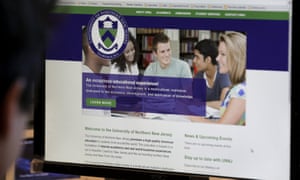President Obama announces his expansive executive actions on immigration in 2014. (Photo: Jim Bourg, Pool/AP)
The Supreme Court’s conservatives, led by Chief Justice John Roberts, seemed skeptical Monday of President Obama’s sweeping immigration executive actions that would shield 4.5 million unauthorized immigrants from deportation and make them eligible for work permits.
Two lower courts ruled that the “deferred action” programs were unconstitutional, and prevented them from being implemented pending the Supreme Court’s decision. The court, which lost its conservative firebrand Antonin Scalia in February, has been mostly kind to the president’s legacy — but it’s unclear if his luck will hold out in his final year in office.
In oral arguments in the case, Roberts asked Solicitor General Donald Verrilli to explain whether he believed a president could decide not to deport any immigrants at all. Verrilli said immigration law binds the executive to deport immigrants recently arrived at the border and those who commit crimes, but he stressed that Obama’s program, which is aimed at young unauthorized immigrants and the parents of U.S. citizens, is not that sweeping. “That’s a million miles from where we are now,” Verrilli said.
“It’s 4 million people from where we are now,” interrupted Justice Anthony Kennedy, one of the court’s conservatives who occasionally sides with the liberals. Kennedy added that he thinks the president is setting policy on his own, ignoring the will of Congress. “That’s just upside down,” he protested.
Both Roberts and Kennedy sided with the court’s liberals in the last major immigration case to reach the Supreme Court, over Arizona’s SB 1070 law. They affirmed the executive’s power to pursue its own immigration policies even when it inconveniences states.
But in Monday’s oral argument, both men asked questions that suggested they believe this case is different. If the court rules against the government, it could put in jeopardy Obama’s earlier program that has already protected from deportation 800,000 young unauthorized immigrants who came to the country as children. That deferred action program is not being challenged, but if the court issues a broad ruling, it may undercut its status as well
Mario Gochez of New Jersey joins other supporters of immigration reform in front of the Supreme Court, April 18, 2016. (Photo: Pablo Martinez Monsivais/AP)
Verrilli maintained that Texas and 25 other states that joined its claim do not have the legal right, or standing, to sue the federal government. Texas is suing because the state allows people with deferred action status to apply for driver’s licenses. The state estimates it would spend millions of dollars if the estimated 500,000 people in its state who will be legalized under Obama’s programs apply for licenses.
The government says Texas could easily change its law, preventing people on deferred action from getting licenses. But Roberts and Justice Samuel Alito seemed to reject that argument, pointing out the government would probably sue Texas if it blocked immigrants from accessing licenses. Verrilli would not rule out that possibility, but maintained the state still did not have standing.
Justice Stephen Breyer made the most convincing argument for not granting Texas standing — a decision that would allow the eight-person court to dodge a contentious deadlock on a politically charged case. The liberal judge said the Supreme Court had already decided that states and taxpayers may not bring suits against the federal government simply because they do not believe their taxpayer money should be spent on policies they do not agree with. Allowing such suits to continue would make courts the referees in non-Constitutional disputes between states and the feds. “Before you know it, power will be transferred from the president and Congress, where it belongs, to a group of unelected judges,” Breyer said.
It’s unclear whether Breyer’s argument will sway his colleagues. In 2007, the court’s liberals allowed Massachusetts’ residents to sue the Environmental Protection Agency over its failure to enforce carbon emissions rules, which they argued was leading to the erosion of the state’s coastline. Breyer argued that case was different, because it involved the state’s land, not simply its taxpayer funds. At one point on Monday, Roberts said that the loss of the state’s money is “classic” injury, suggesting he may not share Breyer’s hesitation on standing.
It’s not just the fate of millions of immigrants that hang in the balance. If the court strikes down the president’s immigration actions, it will be a reversal of recent trends. “Historically, immigration is an area where the Supreme Court has given the president a whole lot of deference,” said Jeff Rosen, president of the nonprofit National Constitution Center. If the court decides Obama overreached, “that will be a really dramatic holding.”
A decision is expected in June.
Source: https://www.yahoo.com/news/supreme-court-asks-whether-obama-overreached-with-173151507.html

